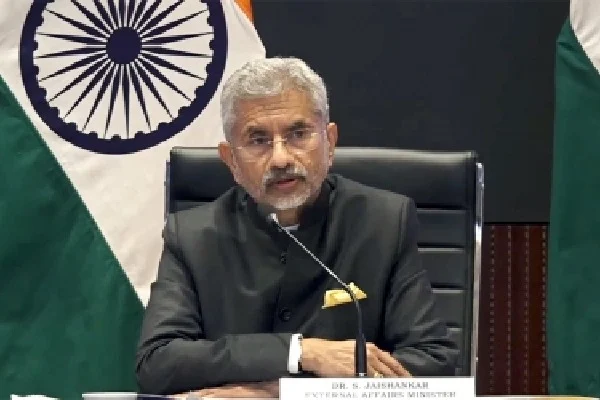In a recent interview with German economic daily Handelsblatt, India’s External Affairs Minister, S Jaishankar, shed light on various aspects of India’s diplomatic stance, particularly in light of recent global developments. Here’s a breakdown of the key points discussed:
1. Shifting Dynamics in Arms Trade:
Jaishankar highlighted a significant shift in the dynamics of arms trade over the past decade. He noted that many Western countries used to prefer supplying arms to Pakistan rather than India. However, this trend has changed, with India diversifying its arms procurement from suppliers like the USA, Russia, France, and Israel. This shift underscores India’s growing importance in the global arms market and its evolving role as a major defense player.
2. Stable Ties with Russia:
Despite recent geopolitical tensions stemming from Russia’s invasion of Ukraine and subsequent sanctions by Western nations, Jaishankar reaffirmed India’s “stable and friendly ties” with Russia. He emphasized that Moscow has never harmed India’s interests and that the bilateral relationship is built on a foundation of trust and mutual respect. India’s continued purchases of Russian crude oil, despite Western sanctions, reflect the depth of this relationship and India’s pragmatic approach to energy security.
3. Energy Procurement Challenges:
Jaishankar addressed the challenges India faced in procuring energy resources, particularly in the wake of the conflict between Russia and Ukraine. With Europe shifting its energy procurement to the Middle East, India was left grappling with potential supply shortages and increased costs. In response, India opted to continue purchasing Russian crude oil, leveraging its longstanding relationship with Moscow and securing favorable terms to meet its energy needs. This decision underscores India’s strategic priorities and its ability to navigate complex geopolitical realities to safeguard its energy security.
4. Diplomatic Autonomy:
India’s foreign policy decisions, including its stance on Russia and energy procurement, underscore its commitment to maintaining diplomatic autonomy and pursuing its national interests. Jaishankar emphasized that India cannot be expected to align its views on Russia or China with those of Europe or the West entirely. He highlighted the need for mutual understanding and respect for differing perspectives in international relations, emphasizing that each country operates within its own geopolitical context and strategic imperatives.
5. Critique of Global Economic Model:
Jaishankar criticized the existing global economic model, describing it as unstable and unfair. He pointed out the over-concentration of production in a limited number of countries, leading to economic imbalances and hollowing out of economies in other regions. This critique reflects India’s push for a more equitable and inclusive global economic order, where all nations have the opportunity to thrive and benefit from international trade and cooperation.
Jaishankar’s interview provides valuable insights into India’s diplomatic priorities and strategic considerations in the face of evolving global challenges. It underscores India’s commitment to maintaining stable and mutually beneficial relationships with key partners like Russia, while also asserting its autonomy and pursuing its national interests on the world stage. As India continues to navigate a rapidly changing geopolitical landscape, its diplomatic engagements and foreign policy decisions will play a crucial role in shaping its future trajectory on the global stage.
